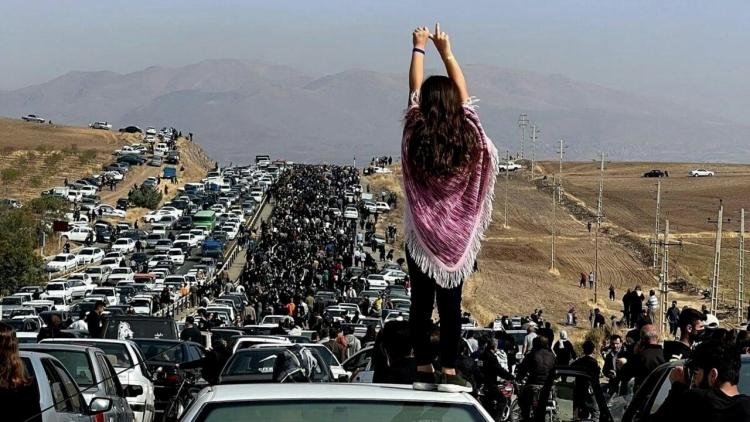Dr Elaheh Rostami-Povey

Key information
- Roles
- Centre for Iranian Studies Associate Member Centre for Migration and Diaspora Studies Member
- Department
- Centre for Iranian Studies
- Qualifications
-
PhD (The Open University), MA (Sussex), BSc (Hons)(University of East London)
- Email address
- ep2@soas.ac.uk
Biography
Dr. Elaheh Rostami-Povey is an academic, writer and researcher. Her book, Iran’s Influence: A Religious-Political State and Society In its Region (Zed Books 2010) is based on testimonies of Iranians, Iraqis, Lebanese, Palestinians and Egyptians – activists, journalists, refugees, exiles and academics – with diverse political views ranging from Islamist modernists, the secular left, nationalists and feminists, whom she interviewed throughout 2007-2009 in Iran, Lebanon, Syria, Palestine, Egypt and the UK. Her book, Afghan Women: Identity and Invasion, (Zed Books 2007) is based on qualitative research findings, including interviews with women and men in Afghanistan, Iran, Pakistan, the UK and the USA. This research was funded by the Economic Social Research Council (ESRC UK in 2004-05). This book is intended to counter the often inaccurate and misleading impressions put about by the media and politicians in the West when they talk about Afghanistan and Afghan women in particular. It is a challenge to Western feminists who do not try to understand women in Muslim majority societies and cultures. Elaheh’s book, Women, Work & Islamism, Ideology and Resistance in Iran (Zed Books first edition 1999 and second edition 2010) is based on an extensive field research during 1989-1992 in Iran. This book analyses women’s employment across classes and levels of religiosity. The book focuses on women’s struggle for change and the impact that this has had on state ideology and on gender relations in both the public and the private spheres. She has also co-edited (with Tara Povey) Women, Power and Politics in 21st Century Iran (Ashgate 2012). This book examines the women’s movement in Iran and its role in contesting gender relations since the 1979 revolution. Looking at examples from politics, law, employment, environment, media, religion and the struggle for democracy, the book demonstrates how material conditions have important social and political consequences for the lives of women in Iran and exposes the need to challenge the dominant theoretical perspectives on gender and Islam.
Research interests
Dr. Elaheh Rostami-Povey’s research focuses on Iran, Afghanistan and the Middle East, in particular gender issues in Iran. Women’s employment, feminisms, war, conflict, diaspora, and Iran in the Middle East. Her books and articles have been translated into Farsi, Arabic, Portuguese and Korean languages.


